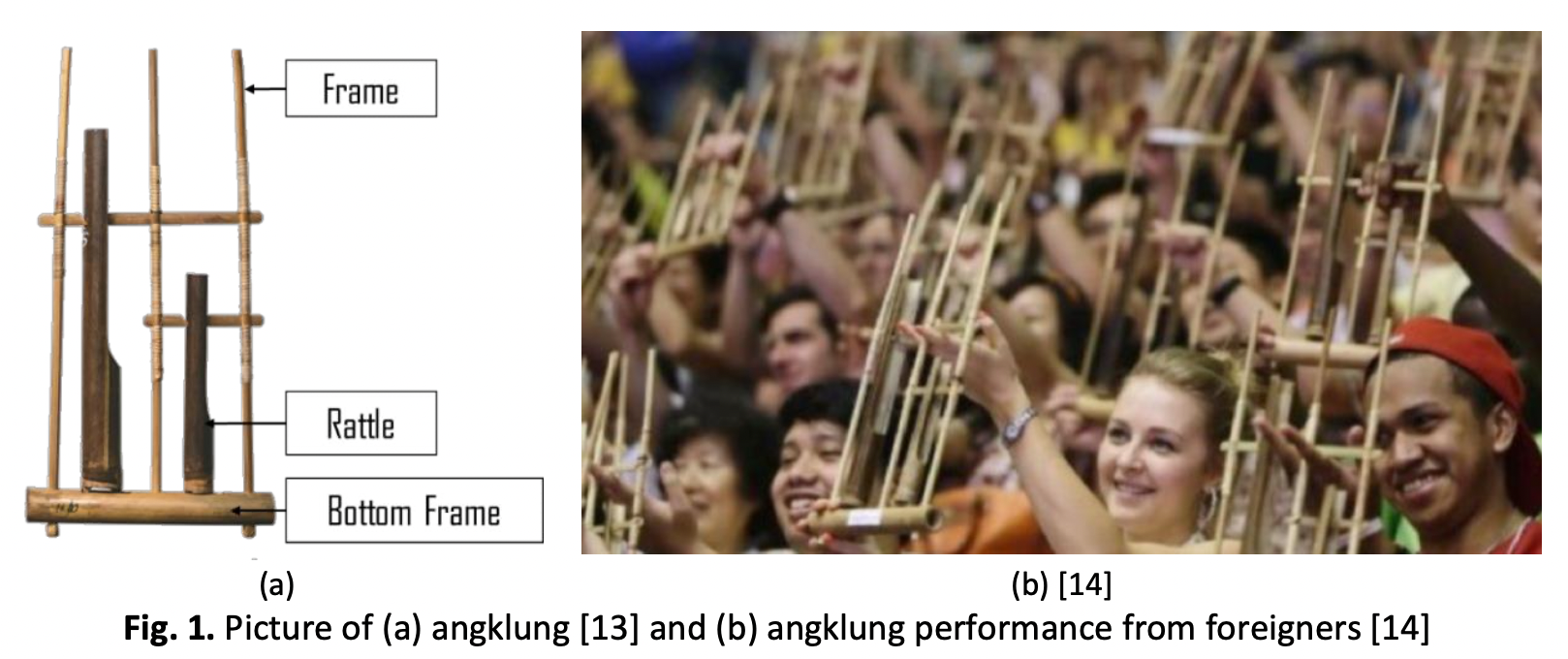Design of Angklung Music Scoring System Based on Remote Training
DOI:
https://doi.org/10.37934/araset.31.1.355364Keywords:
Angklung, music, scoring system, remote trainingAbstract
Angklung is a traditional musical instrument from West Java, Indonesia. To play a song using this instrument can only be played in groups. The size of the musical instrument is quite large and prone to damage if carried anywhere, making it challenging to practice except in schools or music clubs. Since the pandemic, it has become increasingly difficult for students to practice angklung due to the limitations of face-to-face learning. This study aims to make it easier for students to practice and play angklung. The system is based on online multiplayer games so that students can learn and play angklung with more fun, and players can play anywhere. Players can use the mobile version of the angklung application as a substitute for the angklung instrument. Players can perform a duet with other players in playing the same song. The results of the player's performance will be displayed as scores and stored in the database. Besides that, a real-time feedback function is always displayed for each note played. To distinguish individual players and/or notes, we use vibration sensor technology installed in each mobile application or signal processing, and the system will recognise them properly. We propose a Short-time Fourier Transform (STFT) algorithm as a scoring system and realtime-feedback performance. We use class diagrams to describe the whole application system and describe the functionality of the system in detail. We collect some research related to angklung and technology. Currently, there is a little study that could answer all the problems of learning and training angklung. The results of this study in the form of a system design are the initial research stage and are used for the following research phase. In conclusion, the design of this study can solve the existing problems so that the system will make it easier for students to practice and play angklung.
Downloads


























